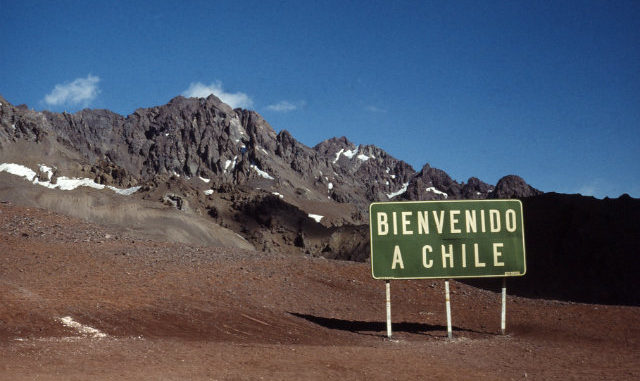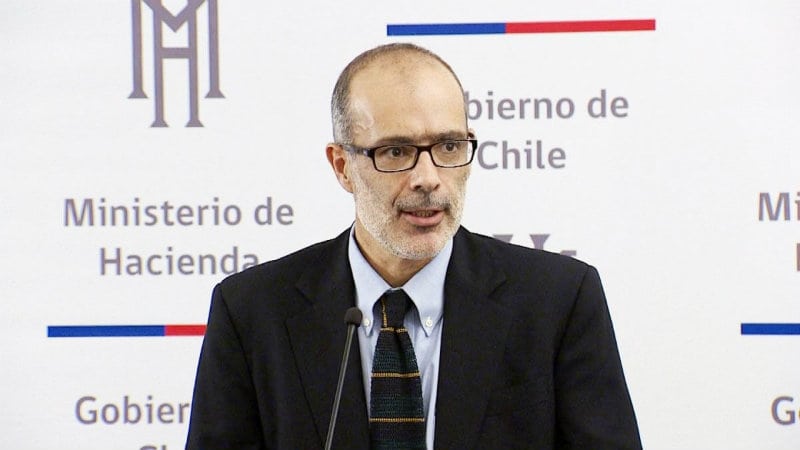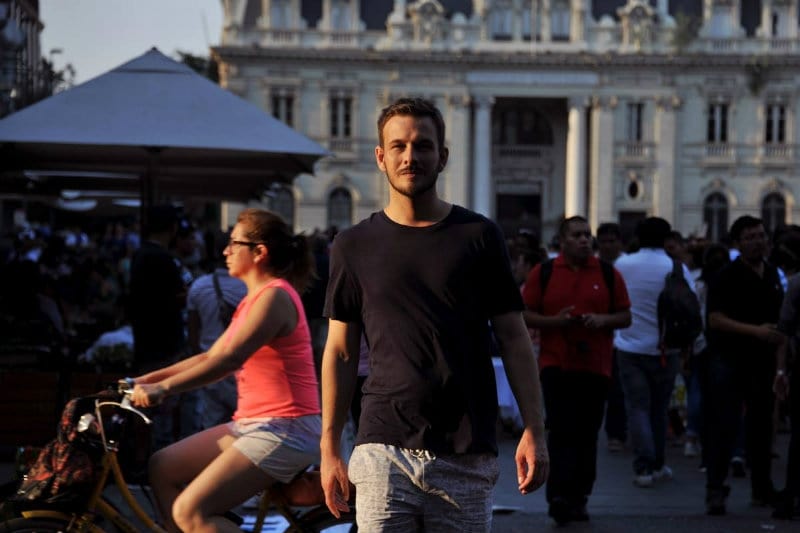
Boris Arjuna/The Santiago Times Staff
With the presidential elections 2017 in Chile approaching, The Santiago Times takes a look at what’s at stake. Which topics dominate the campaigns of the candidates? What can we expect from our future president? Today: Migration Policy.
Receiving the highest number of all Latin-American countries, while still using a law that was created to limit the arrival of foreigners during the dictatorship of Pinochet: migration is a hot topic for the upcoming elections in Chile. Meanwhile, the biggest problem Chile seems to be having with migrants is not knowing how to deal with them.
Numbers don’t lie. And whoever doesn’t want to believe the numbers can take a look at the streets of Santiago, where migrants swarm in between cars waiting for stoplights, hoping to sell a Super8-chocolate bar to a hungry driver, with only a dusty cap protecting them from the burning sun. Walk to any migration office and count the lines of migrants waiting to jump in the tombola of bureaucracy to apply for a visa, and don’t count them by the amount of people, count them by the meters.
Chile Elections 2017: What’s at stake in Economic Policy?
In May 2017 the Economic Commission for Latin-America and the Caribbean (CEPAL) in collaboration with the International Labor Organization (OIT) published a report that showed that between 2010 and 2015 the numbers of immigrants in Chile increased with an average of 4,9% per year, with 100.000 migrants arriving in those five years, making Chile the country in Latin-America that receives the most migrants. At the same time, the report showed that a high number of migrants coming in to Chile have had an above average education in their home countries. The CEPAL and ITO report shows that nearly 80% of the migrants coming in to Chile have received more than 10 years of education.
But the problems migrants face integrating at the labor market, show that the government of Chile doesn´t seem to understand the value of migrants, Jeannette Lafortune from the Pontificia Universidad Catolica, who investigated the integration of migrants in Chile, tells The Santiago Times.
Chile Elections 2017: What’s at stake in Education Policy?
“Chile’s most important failure is that migrants are unable to find jobs in the sector in which they used to work in their home country. We are wasting the human capital they are bringing by not seeing the value they bring from their experience in their home country. And I do not see much in the new law that suggests that the objective of the government is to have a better control of the current migrant flow in Chile.”
Recently the administration of President Bachelet presented a law that should replace the current law that was created during the years of dictator Pinochet. One of the biggest changes under this law is that migrants entering Chile can apply for the status of ‘visitor’, which means he or she can start work immediately, although a permanent stay is not guaranteed.

Luis Eduardo Thayer, president of the Consejo Consultivo Nacional de Migraciones, questions the timing of the government. “When presenting a project law on something so controversial as migration during an election period, candidates will use it as an instrument to appeal to their voters.” The fact that his counsel wasn´t included in the design of the new law, while ideas of the organizations operating under the umbrella of the Consejo Consultivo were not implemented makes the whole new law even more questionable, says Thayer. “The government does not guarantee that human rights such as access to the health system or access to education are being cared for.”
Chile Elections 2017: What’s at Stake in Foreign Policy?
Apart from the difficulties migrants encounter while applying for a visa or looking for jobs, migrants see themselves being put away as ‘possible criminals’. The focus on national security is strong in the new project law, while numbers show that for every migrant committing a felony in Chile, seven migrants are being victim of a felony. Especially migrants who have ended up in illegality are being looked down upon.
Chile welcomes over 60 Syrian refugees
Victor Hugo Lagos works as lawyer for the Servicio Jesuita a Migrantes (SJM). Lots of Haitian and Dominican migrants he works with are illegal, he tells The Santiago Times. “They are being smuggled through the desert in the north by human traffic organizations that deceive Dominicans, Peruvians and Colombians. The sanction for this manner of entering Chile is expulsion. But Chile doesn’t have sufficient funds to deport people. And so, we have a high number of people who are sanctioned for their way of entering, but they are not being deported, they can’t leave. They are in limbo. Chile is like a machine that produces irregular immigrants!”
Where left-wing presidential candidate Alejandro Guillier is expected to continue the project law as designed by the Bachelet administration, experts expect Sebastian Piñera to be stricter to whoever enters Chile. The favorite for the upcoming elections himself stated his plans regarding migrations policy as following: “I can decide who I want to enter my country. I am not xenophobic, but I do believe that we must have common sense, I do not have to accept anyone who wants to come to Chile.”



